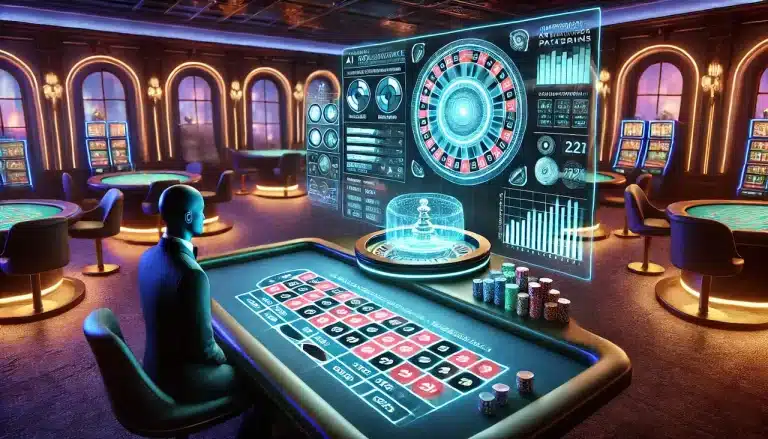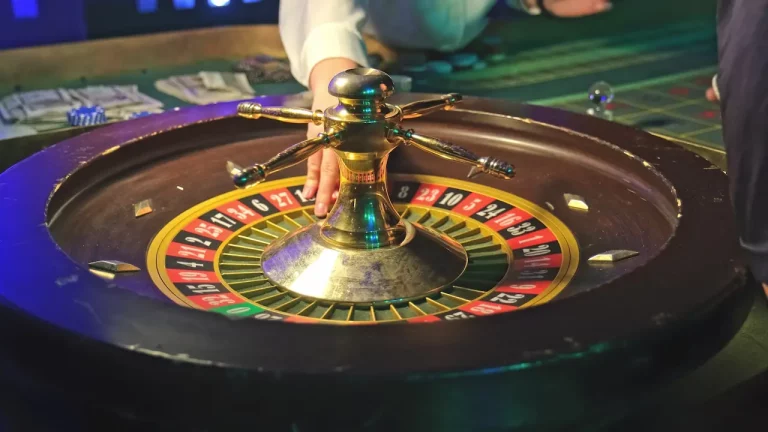First things first, let’s answer the question posed by the title of this article:
Counting cards isn’t illegal and won’t get you thrown in jail. However, casinos reserve the right to limit your action, ban you from playing blackjack, or even make you persona non grata at their properties if you are caught doing so.
Casinos are constantly on the lookout for card counters, so players these days often target smaller casinos where the security is looser, play short sessions and attempt to disguise their strategy by not always making game-theory-optimal decisions.
What is Card Counting?
Card counting is a blackjack strategy where a player tracks the ratio of high to low-value cards dealt to gain an edge over the casino. By assigning values to cards, the player will estimate the likelihood of favorable cards remaining in the deck. When the count is high, the player is more likely to receive a high-value card and create a strong hand, improving the odds of winning.
History of Card Counting
Card counting dates back to the 1950s, but the concept was revolutionized by mathematician Edward O. Thorp in the 1960s. Thorp, a professor, used early computers to analyze blackjack and published his groundbreaking book “Beat the Dealer” in 1962.
He was the first person to mathematically prove that blackjack could be beaten and introduced the Ten-Count System. The math professor wasn’t merely an academic. Before releasing his book, he took a trip to Reno and won $11,000 in two days.
Thorp’s method inspired the famous MIT Blackjack Team. Formed in the late 1970s and active into the 1990s, the team used card counting and team-based strategies to win millions from casinos worldwide. Their success was popularized in the book Bringing Down the House and, later, the film 21.
How Do You Count Cards?
Hollywood has made it seem like you have to be a genius to count cards. However, the math involved is actually very simple:
- Assign Card Values – Give cards 2-6 a value of +1, 10-Ace a value of -1, and 7-9 a value of 0.
- Track the Running Count – You start at 0, and as cards are dealt, you add or subtract based on the assigned values.
- Calculate the True Count – Divide the running count by the number of remaining decks. This adjusts for multiple decks.
- Adjust Your Play – Increase your play when the true count is positive +2 or higher.
- Apply Basic Strategy – Before you play, familiarize yourself with a blackjack chart that explains exactly when to hit, stand, split, or double down.
Does Card Counting Work?
Card counting still works in blackjack but is much harder to pull off effectively today as casinos have implemented several measures to counter it, including:
- Multiple decks – Using six or eight decks in a shoe makes it harder to keep an accurate count.
- Continuous Shuffle Machines (CSMs)– These automatic shufflers continuously shuffle up to five decks together, making it impossible to count cards.
- Limits – Casinos limit how much you can change your play, preventing you from increasing your play when the count is high.
- Player monitoring – Pit bosses watch for irregular play patterns and will ban you from playing blackjack even if they suspect you are card counting.
Are There Other Ways to Beat Blackjack?
Blackjack has a built-in house edge. There are no strategies that will overcome this edge apart from card counting. However, players have beaten blackjack by taking advantage of the casino’s rewards programs. Nowadays, casinos will carefully consider a player’s expected return and ensure not to give away too many comps.
High rollers have flipped the house edge in their favor and won millions playing blackjack by negotiating custom deals such as loss rebates, free chips, gifts, and even special rules. To negotiate these kinds of deals, you need a deep bankroll.
Don Johnson managed to win $15 million without counting cards from the Tropicana, Borgata, and Caesars. Instead, he negotiated a 20% rebate on losses over $500,000, which reset every day. The rules gave Johnson a 0.26% house edge, while your edge when counting cards is typically between 0.50% and 1%, depending on the count.







